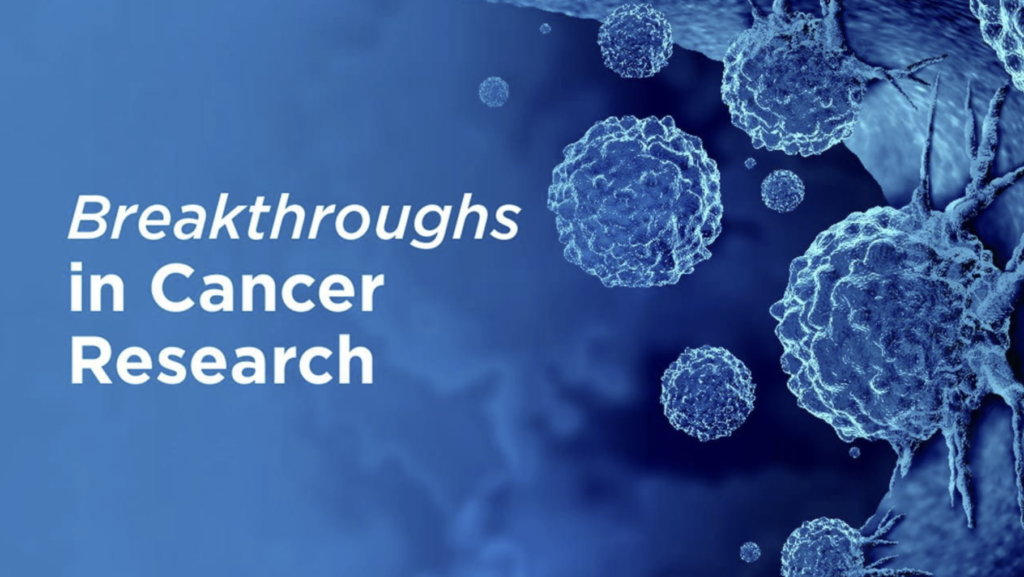
Cancer has long been one of the most formidable adversaries in the realm of human health, but the battle against this complex disease has seen remarkable advances in recent years. Thanks to groundbreaking research and innovation, there’s a glimmer of hope on the horizon for those affected by cancer. This article explores some of the most promising breakthroughs in cancer research, offering a ray of optimism for the future.
1. Immunotherapy: Unleashing the Immune System
Immunotherapy has emerged as one of the most exciting frontiers in cancer research. This treatment approach harnesses the body’s immune system to target and destroy cancer cells. Checkpoint inhibitors and CAR-T cell therapy are just a few examples of this revolutionary approach, which has shown remarkable success in treating various cancers, including melanoma and certain types of leukemia.
2. Targeted Therapies: Precision Medicine
The era of personalized cancer treatment is unfolding. Targeted therapies aim at the specific genetic or molecular abnormalities driving cancer growth. Drugs like Gleevec for chronic myeloid leukemia and Herceptin for breast cancer are pioneering examples. These therapies not only improve outcomes but also minimize side effects compared to traditional chemotherapy.
3. Liquid Biopsies: Detecting Cancer Early
Liquid biopsies represent a groundbreaking development in early cancer detection. These tests involve analyzing a simple blood sample to identify cancer-related genetic mutations and proteins. They can detect cancer at its earliest stages, making early intervention and treatment more achievable.
4. Gene Editing: Revolutionizing Cancer Treatment
The CRISPR-Cas9 gene-editing technology has provided researchers with a tool to precisely alter genes. This has potential applications in cancer research, from modifying immune cells to target cancer more effectively to identifying cancer-causing mutations.
5. Artificial Intelligence: Data-Driven Insights
Artificial intelligence (AI) is transforming the way we analyze and interpret cancer data. Machine learning algorithms can process vast amounts of genetic and clinical information, leading to more accurate diagnoses, treatment predictions, and personalized treatment plans.
6. CAR-T Cell Therapy: Personalized Cellular Treatment
CAR-T cell therapy is a type of immunotherapy that involves reprogramming a patient’s immune cells to target cancer. It’s been particularly effective in treating certain types of blood cancers and holds promise for broader applications.
7. Nanotechnology: Precision Drug Delivery
Nanotechnology is opening new avenues for drug delivery. Tiny nanoparticles can deliver chemotherapy directly to cancer cells, reducing damage to healthy tissues and improving the effectiveness of treatment.
8. Preventive Vaccines: A Shield Against Cancer
Vaccines like the HPV vaccine and hepatitis B vaccine can prevent infections known to cause cancer, such as cervical and liver cancer.
9. Metastatic Research: Halting Cancer’s Spread
Understanding the mechanisms behind cancer metastasis (its spread to other parts of the body) is crucial. Researchers are making strides in uncovering how cancer cells travel and how to stop this process.
10. Liquid Radiation: Precise and Less Invasive Treatment
New radiation therapies are reducing the invasiveness of cancer treatment. Liquid radiation, also known as radiopharmaceuticals, is more targeted and less damaging to surrounding tissues.
In conclusion, while the fight against cancer remains challenging, these breakthroughs in research provide a glimmer of hope. They underscore the immense progress made in understanding cancer at a molecular and genetic level. By focusing on precision medicine, early detection, and personalized treatments, the future of cancer care looks brighter. As researchers continue to unravel the complexities of this disease, the horizon holds even more promise for improved cancer treatments and, ultimately, a world with fewer cancer diagnoses and more survivors.



